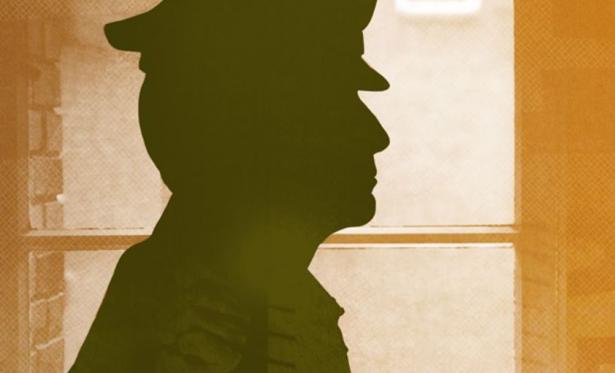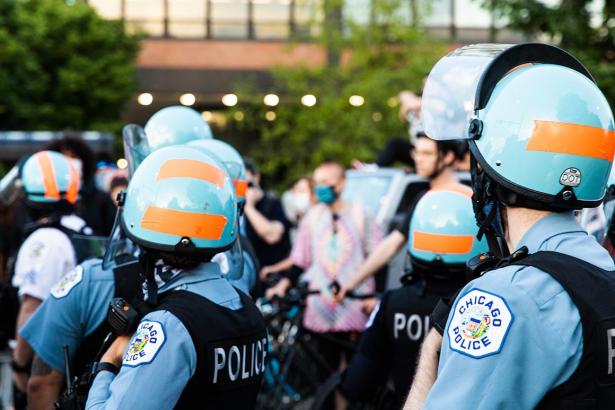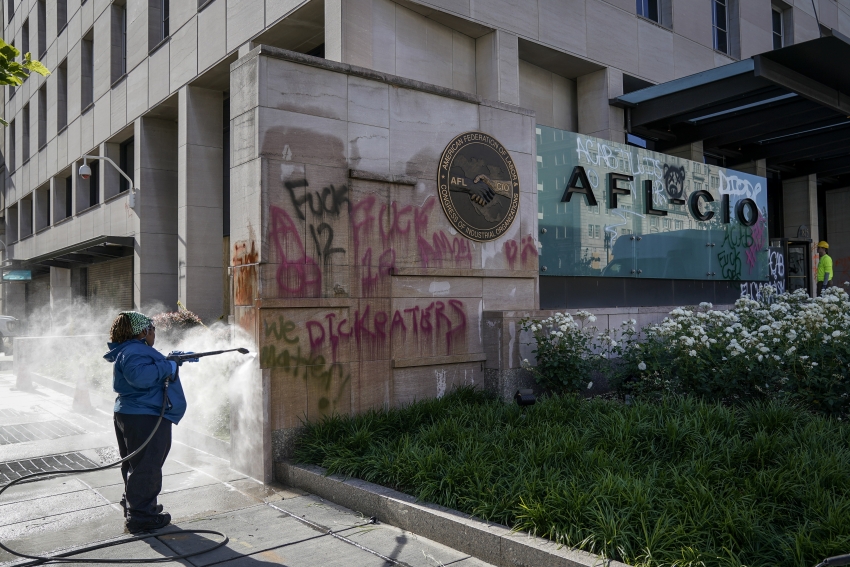
David Robb
Deadline June 11, 2020

Click here to read the full article.
SAG-AFTRA leaders today called upon police unions to change with the times “or lose all support from their fellow labor organizations and the public at large.”
In a joint statement, SAG-AFTRA president Gabrielle Carteris and national executive director David White said: “We support convening a meeting of affiliate unions, including law enforcement unions, to discuss police reforms and necessary systemic change. We support working directly with affiliated police unions to achieve meaningful changes to the law enforcement culture of discrimination and brutality.”
Many critics believe that police union rules often prevent bad cops from being fired, and Carteris, who is a vice president of the AFL-CIO, said she presented several recommendations to its committees last week They include an expression of support for Black Lives Matter; a call for “all affiliate members of the AFL-CIO to explicitly and loudly demand that police unions disavow those officers who target black people”; and convening “all parts of the labor movement, including non-affiliated unions, to issue a public statement condemning racial injustice.”
Carteris and White stopped short of joining the WGA East in calling for the AFL-CIO to disaffiliate with the International Union of Police Associations, a labor organization that represents more than 100,000 police officers around the country.
WGA East Calls On AFL-CIO To Give Police Union The Boot
In their statement, Carteris and White also urged police unions to “dismantle the structures they have erected that have been used to protect officers who engage in racially targeted violence, racial profiling, and other racist and unlawful conduct towards Black and other citizens of this country. This includes all steps necessary to change collective bargaining agreement provisions, and other practices and protocols that stand in the way of police departments being strong defenders of all people as opposed to tools of oppression against Black people.”
They also noted that “As a labor union representing members and staff who have been personally and directly affected by police violence, we recognize the simplicity and simultaneous complexity of the challenges facing police unions at this time in our nation’s history.”
Here is the full statement from SAG-AFTRA’s Carteris and White:
As a labor union representing members and staff who have been personally and directly affected by police violence, we recognize the simplicity and simultaneous complexity of the challenges facing police unions at this time in our nation’s history. Accordingly, we assert the following:
Black Lives Matter.
We reject and denounce police brutality and the corrupt systems that for decades supported a culture of racism, injustice and brutality. We stand in solidarity with all who have experienced injustice and violence at the hands of law enforcement. Police organizations must change.
Real change is more than just talk. It is action. We call for real change and we are willing to work for it and fight for it.
Police Unions Must Confront Those Structures that Facilitate Racist, Unlawful Misconduct.
Last week, President Carteris, who is also a vice president of the AFL-CIO, presented several recommendations to its committees.
President Carteris’ recommendations were: 1) express public support for Black Lives Matter, 2) call upon all affiliate members of the AFL-CIO to explicitly and loudly demand that police unions disavow those officers who target Black people, and 3) bring together all parts of the labor movement, including non-affiliated unions, to issue a public statement condemning racial injustice.
To these recommendations we now add a fourth: police unions must dismantle the structures they have erected that have been used to protect officers who engage in racially targeted violence, racial profiling, and other racist and unlawful conduct towards Black and other citizens of this country. This includes all steps necessary to change collective bargaining agreement provisions, and other practices and protocols that stand in the way of police departments being strong defenders of all people as opposed to tools of oppression against Black people.
We Support Policing with Integrity. These Concepts are Not Inconsistent.
e recognize those brothers and sisters who are police officers and who work lawfully and tirelessly to serve us and protect us from harm. We do not believe that this demand for change in unions is inconsistent with celebrating police officers who do their work with integrity. We know from experience that unions do, and must, confront their problems, learn from their mistakes and evolve into better organizations and representatives of working people.
We believe that we have an opportunity to make tomorrow better than today. We call upon police unions to seize this opportunity and reform their culture and practice. Black lives matter and our police must support this truth in all ways.
Tomorrow Can Be Better Than Today. We are Prepared to Participate.
We support convening a meeting of affiliate unions, including law enforcement unions, to discuss police reforms and necessary systemic change. We support working directly with affiliated police unions to achieve meaningful changes to the law enforcement culture of discrimination and brutality.
We call on police unions to seize this opportunity. They must rise to the occasion or lose all support from their fellow labor organizations and the public at large.





















